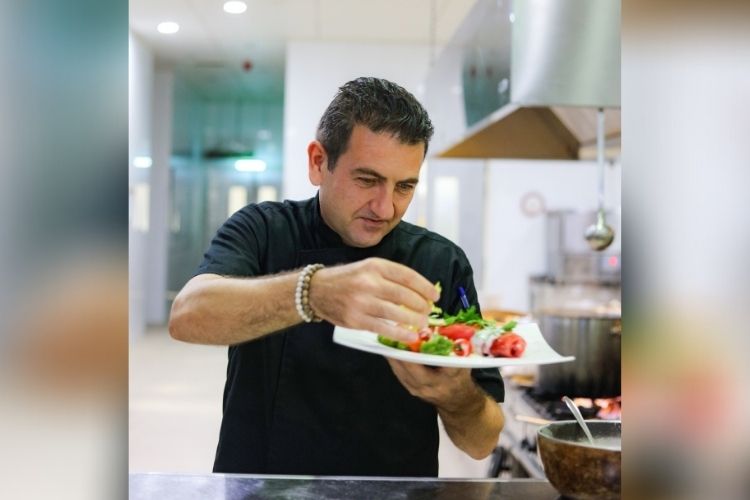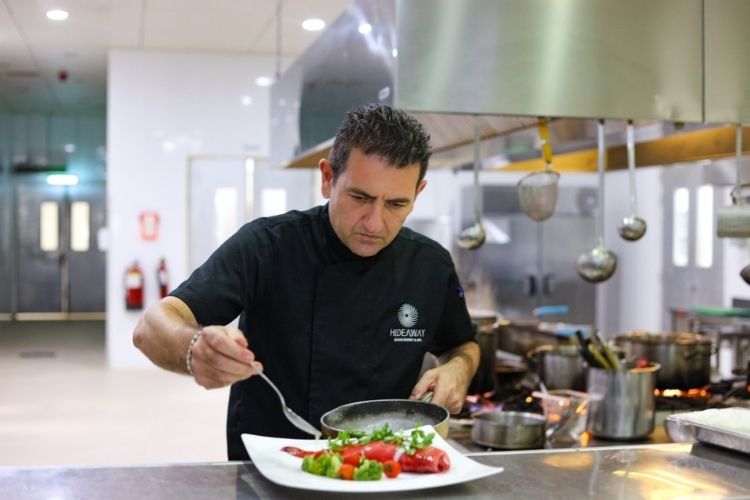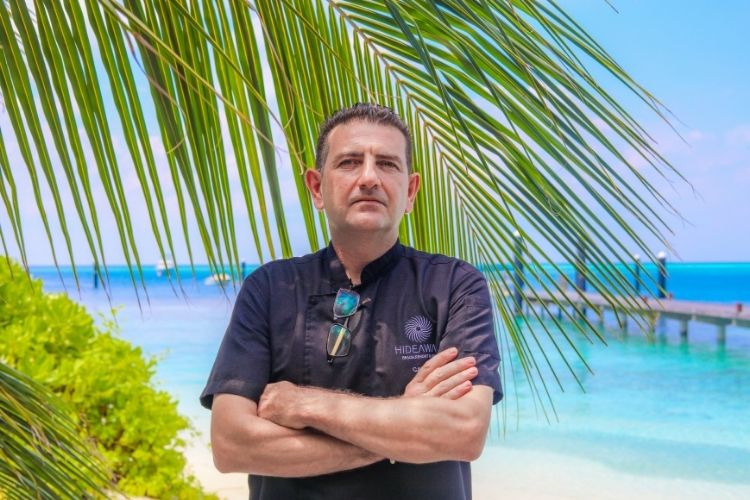Hideaway Beach Resort & Spa welcomed Chef Carlo Di Nunzio to the position of Executive Chef at the 5-star luxury resort. Originally from Torino, Italy, Chef Carlo is bringing with him an accomplished and impressive skillset and over 32 years of food experience, expertise, and management.
His passion for food is fuelled by the long-held belief that cooking is the only job in the world that brings out positive emotion in others. Actually, this is the reason he initially started to pursue a career in the kitchen: The joy and emotion in the faces of those who experience his culinary adventures and react to well-made dishes drive him as a chef. Preparing good food makes people happy- it is as simple as that.

Though initially inspired by the Italian palate, Chef Carlo Di Nunzio moved across the world in his mission to make people happy through food. He has honed new skills and gathered a diverse clientele in Switzerland, France, Romania, Egypt, England, and Portugal before ending up here in the paradisiacal islands of the Maldives. During his time overseas, the chef worked in international hotel chains and Michelin Star restaurants with the goal of bettering himself and furthering his mantra to bring joy to even the pickiest and hard-to-please customers.
When in Rome, do as the Romans do- and that is exactly what Chef Carlo Di Nunzio practices during his time in the Maldives. To do this, he never ceases to stop learning and prefers to hear from local chefs about the way of the craft. In turn, he imparts his own knowledge for a sharing of culinary information to take place, and as a team, they create some wonderful dishes for the guests.
Chef Carlo has a firm belief that there are many similarities between Italian and Maldivian cuisine, which seem to intersect most in seafood-focused meals. This is no surprise when considering the abundance of fresh catch from the Maldivian seas and the variety of local materials used in the cooking process.
Also read: An Easter Surprise Bonanza Awaits Couples and Families at Hideaway Beach Resort & Spa
He prefers for people to know what they are getting, prepare it with the freshest ingredients possible, and then watch as they leave fuller and happier than they arrived. Not only is this mantra better for the environment, but it is also better for our nutrition. By preparing food from the freshest ingredients, Chef hopes that guests at Hideaway truly experience how remarkable food can taste.

Chef Carlo has already started sharing creations at Hideaway with countless recipes in the works together with the culinary team. As the resort’s new Executive Chef, he says that he is looking to wow and impress the resort’s guests with his many culinary delights and bring dining at Hideaway to the next level.
We are also pleased to announce that Chef Carlo is developing a range of fish-based dishes in many ways that will be added to our menus- both in an international twist and even having some Maldivian Elements in the cooking as well. Make sure you taste some of Chef Carlo’s dishes during your next visit to the Maldives at Hideaway Beach Resort & Spa- especially at our upcoming Fish Market Concept: Eat Fish Fresh and Have it your way!
A statement by Hideaway Beach Resort & Spa.
As a local owner-operated company located in the northern-most point of the Maldives, and as one of the only resorts with a marina, Hideaway is as unique as it is luxurious. The curiously shaped island (a crescent shape) is located in an environment where it is very conducive to fishing and farming, which allows the resort to source fresh produce (from its own gardens and farm on the island and affiliated farm islands nearby) to create the best dishes. Thus, Hideaway plans to collaborate with Chef Carlo to create some great culinary experiences, bringing guests on a journey from Farm (and Ocean) to Table.
This way they can have scrumptious cuisine prepared using the freshest produce, to achieve Chef Carlo’s goal – spreading joy and happiness in the world through good food.
Feature imade by Hideaway Beach Resort







